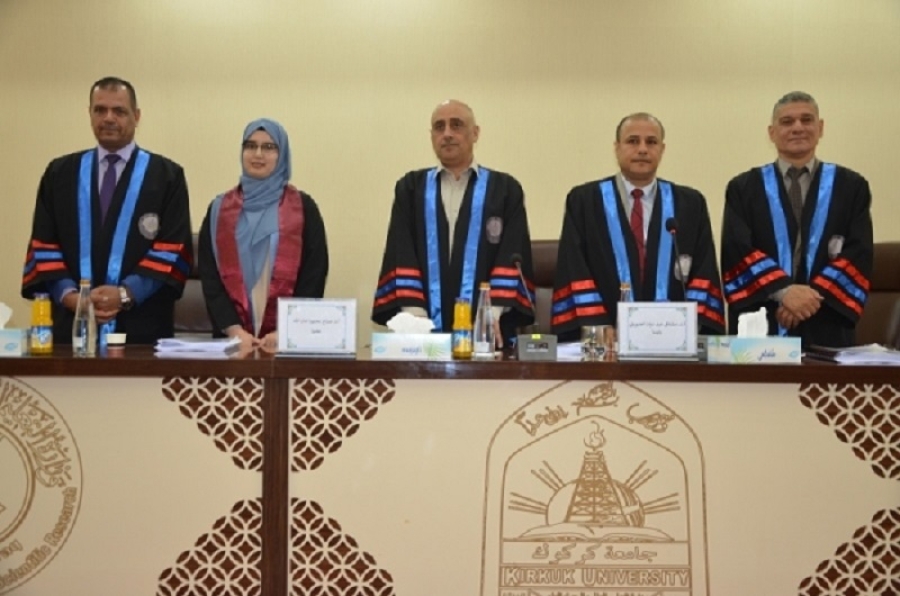A master's thesis in the College of Science discussed the effect of alpha particles of different energies and different abrasive titers on the average abrasion rate of the CR-39 detector, under the supervision of Prof. Dr. Ahmed Abd Ibrahim Al-Obeidi. The thesis presented by the student, Amar Saadoun Munshed, included a study of the effect of changing the concentration and type of the abrasive solution, the energy of the falling particle, and the time of the abrasive on the recording properties. The thesis concluded that the response of the detector in the case of scraping with a sodium hydroxide solution is greater than in the case of potassium hydroxide and that there is an increase in the diameter of traces, their number, and the thickness of the detector with the progression of the scraping time for both scraping solutions. The results also showed that the reason for the increase in VT and VB with the increase in the concentration of the abrasive solution was due to the increase in the reaction speed between the particles of the abrasive solution and the particles of the reagent. The thesis recommended that these results be used to find the scraping sensitivity S, the scraping efficiency ŋ, and the critical angle θc for all scraping times, and to find the trace length and the maximum length in each case, as well as to find the ratio of the scraping rate V by the Lmax method.

